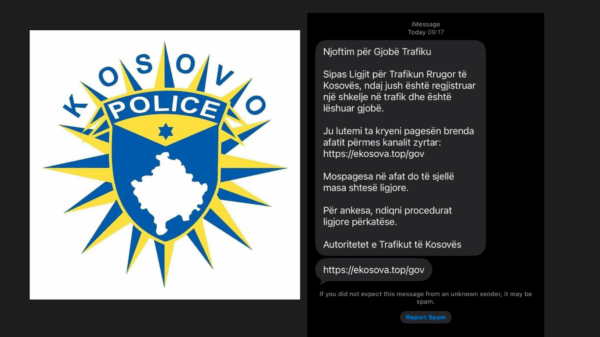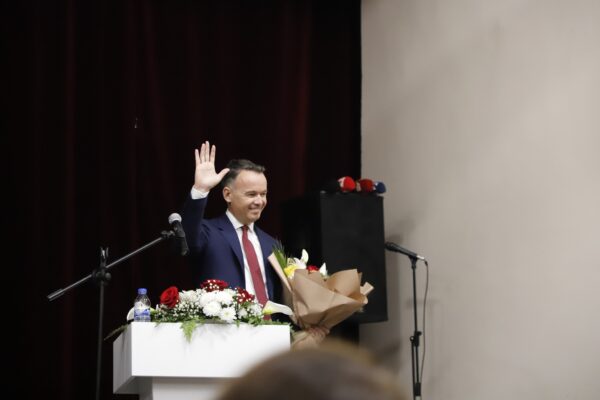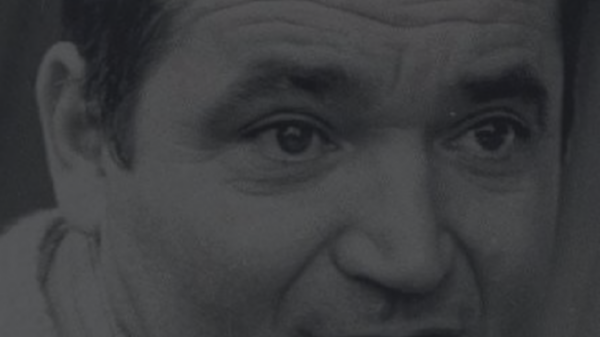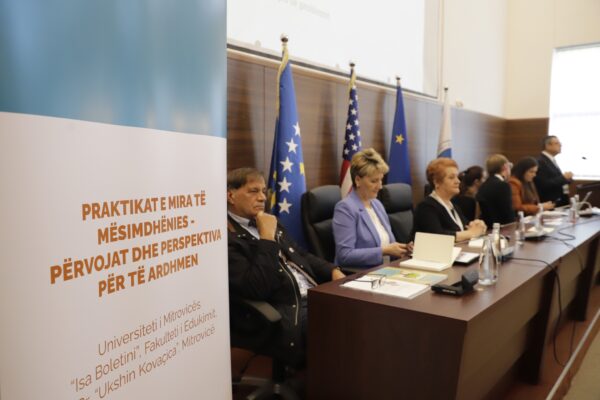TV Mitrovica
The concept of the nation
- 13/07/2021
- By RTV Mitrovica
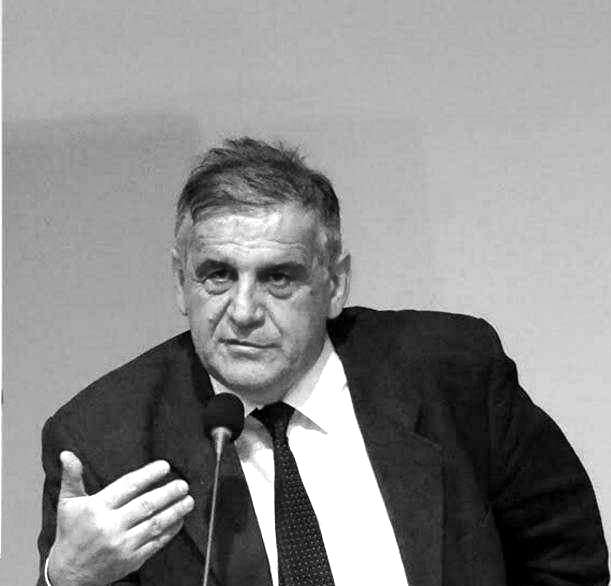
Shkruan: Nexhmedin SPAHIU (Nga Arkivi, 2015 – teksti në gjuhën angleze)
After fall of communism many standards have been unified with the Western ones. Unfortunately, the term nation is quite frequently used instead of ethnicity in public appearances. This is apparent both in Albania as well as in the territories of the Former Yugoslavia.
Quite frequently happens that the term “nation” from English, is translated to local languages as “state”. Such a translation causes confusion and/or misunderstanding and this is a big mistake.
The concept of the nation is tightly connected with the concept of the state, as well as with ethnicity, religion, race and territory. However, even though in many cases the nation can be matched with one of these concepts, it still remains a greater complex concept than it appears to be.

The definition of the nation
The German Johann Gottlieb Fichte (1762-1814) and the French Ernest Renan (1823-1892), could be considered as the fathers of the nation theory. Many other theoreticians and political leaders dealt with the concept of the nation. In this regard it is worth to mention Emil Durkheim (1858-1917), V.I. Lenin (1870-1924), Johan Huizinga (1872–1945), Mustafa Kemal Ataturk (1881-1938), J.V. Stalin (1878-1953), Edvard Kardel (1910-1979), Karl Deutsch (1912-1992), Eric Hobsbawm (1917-2012), Ernest Gellner (1925-1995), Miroslav Hroch (1932-), Benedict Anderson (1936-), Anthony Smith (1939-), Urs Altermat (1942-), Hagen Schulze (1943–2014), John Hutchinson (1949), Francis Fukuyama (1952-), Rogers Brubaker (1956-), Will Kymlicka (1962-) and many others.
Most of these theoreticians defined the nation their own way. Naturally, in former communist countries the definition of Stalin was almost the only definition that was known around. Stalin linked the nation with ethnicity. Consequently, pupils and students in these countries were convinced that the nation is in fact the ethnicity, or at best “ethnicity at its highest level of its development”.
The essence of all these definitions of the nation is that it is a community of human beings capable to build a state. This means that the nation is the owner of the state.
The birth of the nation
It is the birth of the nation as a particular event which triggered the move from middle Ages to Modern times. During Middle Age, it was the kings, emperors, sultans, khans, shahs, rajas, etc. who were owners of the state, whereas in modern times owners of the states are the nations. Only the state of Vatican is excluded here where the Pope is the owner of the state, but not a nation.
Regarding the question about the first appearance of the nation is to be debated between theoreticians. It remains a much contested issue whether it is the Swedes with Gustav Vasa Erikson in 1523, or the Dutch with their Republic in 1581. However, it is less contested issue that the English became a nation in 1649 with the Revolution of Olivier Cromwell.
However, it is out of question that the Revolution of 1789 gave birth to the French nation. In fact, it is the slogan “Liberte, egalite, fraternite,” (liberty, equality, fraternity) that presents the formula of the nation. De facto, members of a nation are the ones who consider themselves as brothers that are free and equal.
In one case, liberty, equality and fraternity was established amongst members of a particular ethnicity and particular religion within a particular territory, as it is the case with the Serbs, Greeks, Romanians, Bulgarians, Croats, Boshniaks, etc.
In the other case, freedom, brotherhood and equality was established amongst members of a particular ethnicity within a particular territory regardless of their religion, as it is the case with the Albanians, Hungarians, Germans and many others.
In the third case, liberty, equality and fraternity was established amongst members of a particular religion within a particular territory regardless of their ethnic belonging, as it is the case with the Turks, Belgians and others.
In the fourth case liberty, equality and fraternity was established amongst members of certain ethnic groups and certain religions within a particular territory, as it is the case with the Swiss, etc.
In the fifth case liberty, equality and fraternity was established amongst members of all ethnic groups and all religions of one race, as it is the case with the Americans, Canadians, Australians, etc.
The nature of a nation is fluid
The nature of a particular nation may change in time. With the election of Barack Obama as the President of the USA the American nation proved that it is no longer a mono-racial nation, but it has become a multiracial nation. In fact, the move from mono to multi has become a trend for many nations.
Since the fall of communism, the Albanian nation has shown that it is moving from a mono-ethnic to a multi-ethnic nation. To prove this, it is worth mentioning the fact that amongst five Presidents and seven Prime-ministers of post-communist Albania, as far as their ethnicity is concerned, two Presidents and two Prime ministers were non Albanians even though over 90% or 95% of the population of Albania consists of ethnic Albanians. Amongst those four, one was Bulgarian, one Arumanian and two Roma.
Germany-Austria, Serbia-Montenegro, Rumania-Moldavia, Bulgaria-Macedonia!?
Many nations failed to be established as foreseen by their ideologists. Vuk Karadžić (1787-1864) insisted that the Serbian nation should consist of ethnic Serbs of all religions but failed. It appeared that the Orthodox Serbs considered themselves as the Serbs of first class, whereas (they considered) the Serb Catholics as the second class, while the Serb Muslims as the Serbs of the third class.
In many cases the creation of a nation on ethnic bases did not function as foreseen by their ideologists. The Orthodox Romanians intended to develop a single nation on its own but the fate of history (the invasion of Moldavia by USSR in 1944) resulted in the creation of two separate nations: the Romanian and the Moldavian Nation. The Moldavians call their language Romanian Language and they do not deny their Romanian ethnicity.
The case is opposite with the Montenegrin nation. As soon as they appeared as a nation they alleged that their ethnicity too is different from that one of the Serbs. Besides this, they started to call their language Montenegrin despite the fact that their main national hero, Njegoš, considered himself as a Serb.
The same happened earlier with the Bulgarians. Following the invasion of Macedonia by Serbia during the Balkan wars and the failure of the process of serbianization of Macedonian Bulgarians, the historic events resulted in the creation of the Macedonian nation. Their ideologists went so far as to deny their Bulgarian ethnicity in order to strengthen, as much as they could, their national identity. They call their language Macedonian even though during discussions amongst Macedonian and Bulgarian officials there is no need to engage interpreters. Nevertheless, it is their political right to consider their ethnicity as they wish, but the fact is that their main national hero, Gotse Delchev (1872-1903) considered himself as a Bulgarian and his VMRO (political party) aimed to join the territory of Macedonia to the state of Bulgaria.
There are numerous cases in the world where some nations that recognize each other agree with the fact that they share the same ethnicity, as it is the case between Germans-Austrians, Malay(sians) – Indonesians, the Arab nations and many others.
The Kosovar Nation
The term “Kosovar Nation” was mentioned for the first time in 1941 by Mitrush Kuteli in a poem attributed to Kosovo. However, about twenty years ago, this term was promoted for the first time as a political concept by the author of these lines.
The concepts of ethnicity and nation were synonymous for the Albanian elite in Tirana and Prishtina. Accusation for national betrayal, division and destruction of national unity did not rest for years. In 2004, when the book “Towards the Kosovar Nation” was promoted, copies of the book were forcibly taken away from the author and then burnt in front of cameras.
This situation changed when Kosovo declared its Independence, and when British PM, Tony Blair, and US State secretary, Hillary Clinton wished “a long life to new Kosovar nation” during their visits to Kosovo. Following these wishes the number of supporters of Kosovar nation kept growing to such an extent that even the President of Serbia, Boris Tadić, in his speech at the Security Council of the UN saw it reasonable to argue and allege that the Kosovar nation does not exist.
Nation is a political construction and it is natural for the President of Serbia, who doesn’t recognize the State of Kosovo, to deny the existence of the Kosovar nation. If the Kosovar Nation were to exist for the President of Serbia in that case he would have recognized the State of Kosovo.
The Kosovar nation does not exist also for 84 political leaders of other countries, but this nation now does exist for 108 nations that are members of the UN.
The paradox is that almost all political leaders of Kosovo and the so called the Kosovar elite agree with President Tadić that the Kosovar nation does not exist. This stance of Kosovar leaders makes them to be seen funny and stupid in the eyes of their western colleagues. On one hand, they request to become a member of the UN, while on the other, they state that they are not a nation!.
The Kosovar nation is not mentioned in the Constitution of Kosovo either. However, the Kosovar Nation is explicitly mentioned in the Marti Ahtisaari Plan. Article 1.7 of this plan states that Kosovo must have its national symbols, including its flag, its emblem and its national anthem. Kosovar politicians and the majority of the media in Kosovo keep calling these symbols as state symbols whereas as the national symbols they do consider only Albanian National symbols.
Some Kosovar commentators argue with their colleagues in Tirana by asking ‘why in Tirana they call the Kosovar Representative Team (for example in football ) as the Kosovar National Team if, according to these commentators, the Kosovar nation does not exist?!
The Ahtisaari Plan implicitly formulates the Kosovar nation
The Ahtisaari Plan explicitly defines the minorities in Kosovo as well as their positively discriminated rights. This means that the Kosovar nation consists of the Albanian community due to the fact that other communities are defined as minorities.
According to Ahtisaari Package it results that the Kosovar nation is a mono-ethnic and bi-religious (Muslim-Catholic) nation. According to this basic document, and consequently the Constitution of Kosovo too, the Albanian Catholics do not have any reserved seats in the Parliament of Kosovo. Why? Because, Ahtisaari saw them as an integral part of the Kosovar nation. From the end of the war until now, the number of catholic members of Kosovo Parliament and ministers was beyond the percentage representation of this community in the Kosovar society and there was no need for any legal or constitutional interference.
The Ahtisaari Plan is not an obstacle for the future development of Kosovar nation into a multi ethnic nation. In fact it is the opposite, because this perspective is the particular aim of Ahtisaari Plan.
From all communities in Kosovo it is the Serb community that is least expected to become integral part of the Kosovar nation.
According to Ahtisaari, the Serbs remain as integral part of the Serbian nation because every Kosovo Serb is entitled to have a Serbian citizenship. Furthermore, they are (at the same time) also a minority in Kosovo, but different from the Bosniak or Turkish minority who follow their education in Kosovar schools in Bosniak, respectively Turkish languages, the Serbian language schools in Kosovo are part of the schools of the Republic of Serbia within the territory of Kosovo.
The Kosovo Serbs are the only community in Kosovo who lived the life of a nation for almost a century. For this reason the case of Kosovo is Sui Generis. The Serbs in Kosovo have minority status the same as the Serbs in Rumania, but different from the Serbs in Rumania, who neither are nor ever been integral part of the Serbian nation, Kosovo Serbs have for almost a century been and continue to be integral part of the Serbian nation. Therefore, it was not natural for Ahtisaari to deny this community the future continuation of the same quality of life that it enjoyed for almost a century.
It remains to be seen how these matters continue to develop in future. However, the example of Kosovo shall contribute in the development of the theory of the nation regardless of the fact what direction they will keep going on.
*The author is a professor of political science at the AAB University in Prishtina (Kosovo) and a Former Professor at the Universities of Tirana (Albania), Tetova (Macedonia) and University of Hamburg (Germany).





